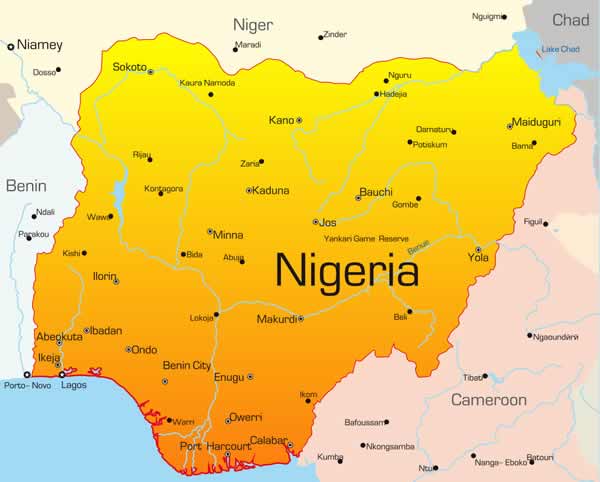Nigeria will work to domesticate human rights treaties, take action to address impunity by security agencies and retain moratorium.
The delegation of Nigeria stated this in Geneva at the Universal Periodic Review of the track records of Nigeria by the UN Human Rights Council.
The Nigerian delegation, headed by Ambassador Audu Kadiri, the Permanent Representative of Nigeria to the United Nations Office and other international organisations in Geneva, welcomed global acknowledgment of improved records since 2013.
Kadiri said the Nigerian Government had strengthened civil-military cooperation, reviewed training curriculum for military and law enforcement personnel, and paid compensation for violations of Apo killings.
He noted the appointment of human rights adviser in the office of the Chief of Defence Staff, establishment of human rights desk and production and dissemination of code of conduct and rules of engagement.
Kadiri said government had adopted the anti torture act, established panel on reform of the Special Anti-Robbery Squad to address torture and extra judicial killing, and Violence Against Persons Prohibition Act to protect women and victims of rape.
The Nigerian Envoy said: “Government has taken action against violations by security forces, and trial of alleged Boko Haram elements has been fair and in compliance with laws.
“Army has robust military justice system to address alleged killings of IMN (Islamic Movement of Nigeria) members. Activities of IMN are reminiscent of Boko Haram.
“Position on Lesbian, gay, bisexual, transgender, and intersex (LGBTI), and death penalty remains same. Although the Federal Government is working with states on implementing the moratorium.”
Kadiri said Nigeria had also undertaken the establishment of Presidential Initiative on Northeast, development of framework on countering violent extremism, and adoption of administration of criminal justice act.
He said other measures taken by the country to strengthen human rights and address impunity were the implementation of a national cyber security policy and strategy, and measures to counter violent extremism.
According to him, Nigeria has established a technical work group to develop database on missing persons, justice sector reforms, and social and economic reforms to implement Sustainable Development Goals.
He pledged that the Nigerian Government was “committed to free, fair and credible elections” as the 2019 general elections draw near.
Kadiri also pledged speedy and fair administration of criminal justice adding: “Nigerian Government is committed to freedom of religion and beliefs despite challenges,” while also welcoming the enhancement of the status of women.
The troika rapporteurs for the review of Nigeria are: Egypt, Brazil and Australia, while 118 delegations made statements at the dialogue chaired by Vice President of UN Human Rights Council, Cristobal Jacardo.
The UK expressed concern about several investigations without prosecution, and obeying court orders on release of Ibrahim El-Zakzaky and hold accountable those who allegedly killed over 300 members, among others.
The US called for publicising report of presidential panel on abuses and violations, while Uruguay urged combating discrimination against women, and progressively reducing the number of crimes for which death penalty may be imposed.
Responding, Kadiri welcomed the recognition by the global community of efforts made by Nigeria especially the Economic Growth and Recovery Plan, fight against corruption, and harmonisation of anti corruption measures.
According to him, Nigeria recognises the challenges, pledging, however, that it will be addressed in the fullness of time.
The ambassador said many issues raised had been addressed including efforts to address corruption and combat terrorism while complying with human rights obligation.
Kadiri explained that civil society groups in Nigeria were free and not obstructed in any manner while peaceful assembly and association were guaranteed.
He added that gender empowerment and women equality were taken seriously and death penalty remains in statutes although government adopted voluntary moratorium.
The delegation said Nigeria has taken strong measures to address corruption, including harmonisation of policies on corruption.
Others are whistle blower policy, mutual legal assistance in criminal matters, single treasury account and Bank Verification Number, and separation of Financial Intelligence Unit from the Economic and Financial Crimes Commission.
Nigeria said the “Safe School Initiative” addresses concerns about school retention in Boko Haram affected areas adding, by the Child Protection Act, early child marriage is a crime, and government is committed to the 35 per cent affirmative action.
NAN.


